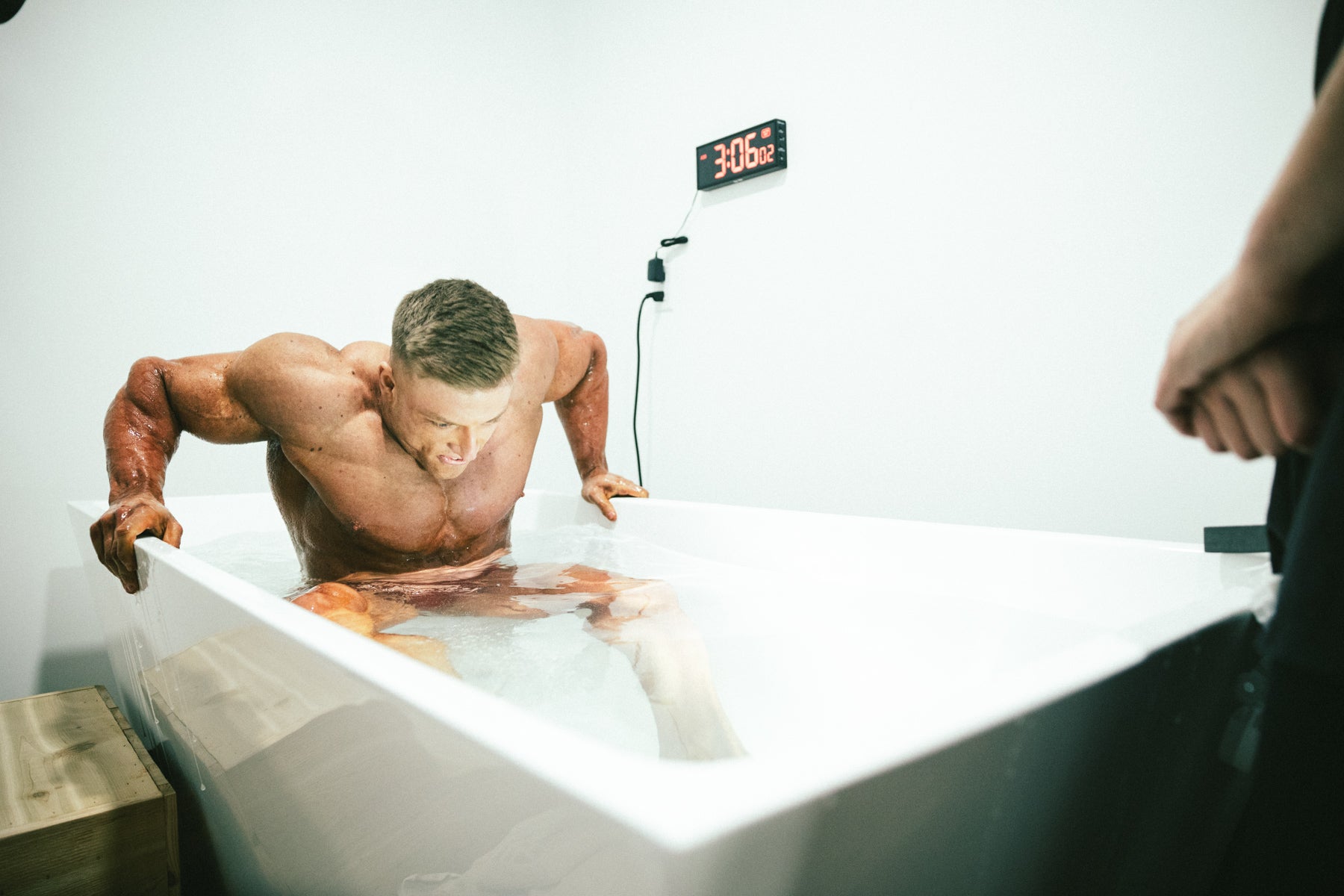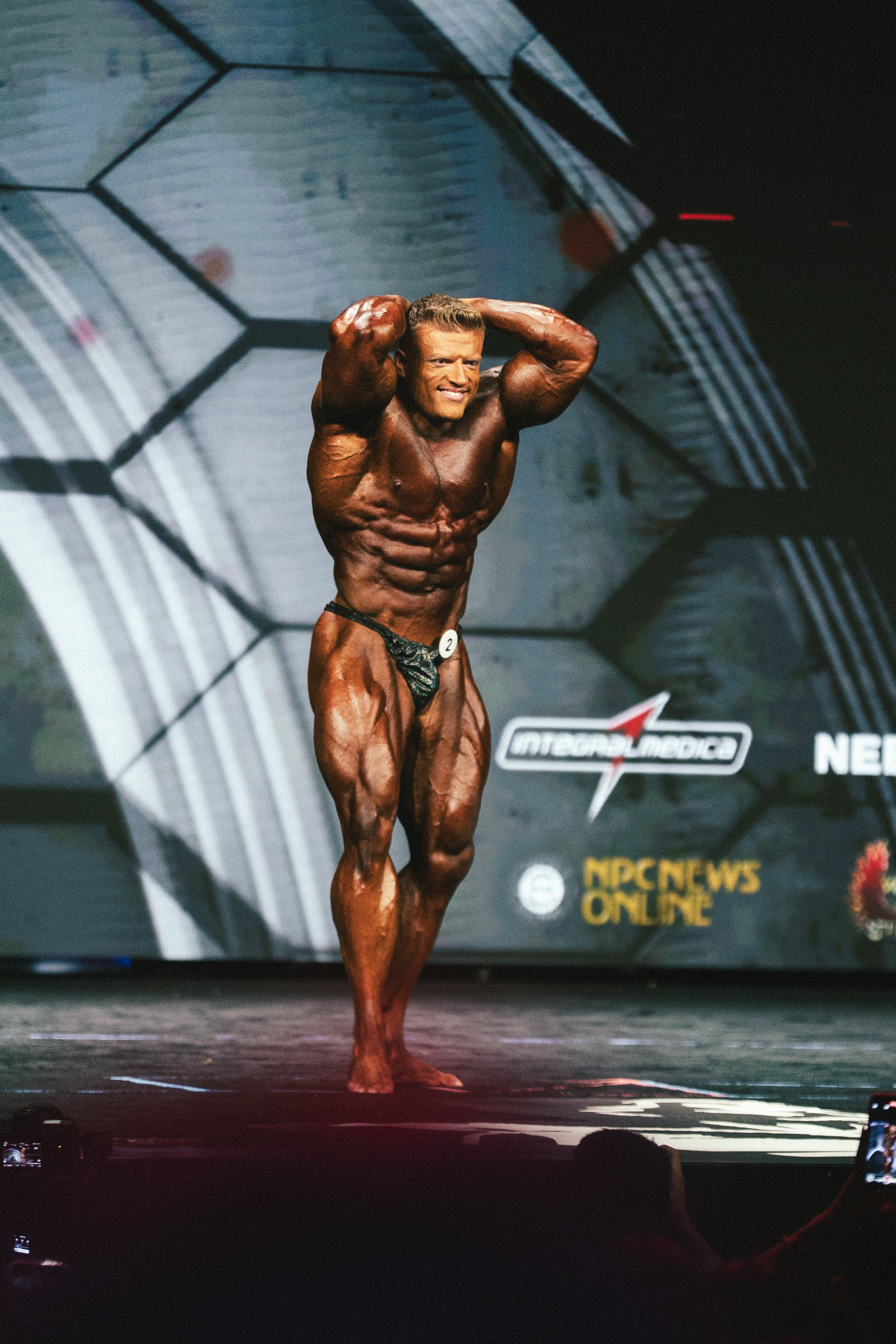Tags: Health, Regeneration
Recovery is one of the most important, yet often underestimated, factors in bodybuilding. While training provides the muscle stimulus, the actual growth occurs during the recovery phase. Without optimal recovery, muscle building and performance improvement can be severely compromised. In this article, we'll explore various aspects of recovery in detail – from sleep optimization and active recovery to useful bodybuilding supplements and specific challenges like shift work.
Recovery-Friendly Training
Basic principles:
- Adjust intensity and volume: Too many sets and extremely high training weight lead to overtraining more quickly.
- Split muscle groups sensibly: If you train your legs one day, you should not plan an intensive session focusing on your lower back the next day, as this requires a lot of strength training exercises such as push-ups. B. squats are involved.
- Correct frequency: Two units per week per muscle group with varying intensity ensure sufficient stimulus without overloading .
The role of Nutrition in Muscle Regeneration
A targeted diet is essential for optimal recovery after intense training sessions. Macro- and micronutrients play a crucial role:
- Protein: The most important building block for muscle repair – high-quality protein sources such as meat, fish, eggs or plant-based alternatives (e.g. B. legumes, soy) support muscle protein synthesis.
- Carbohydrates: Complex carbohydrates such as oatmeal, rice or sweet potatoes replenish glycogen stores.
- Fats: Omega-3 fatty acids (fish, nuts, linseed oil) in particular have an anti-inflammatory effect and support hormone production.
- Micronutrients such as magnesium, zinc and vitamin D are crucial for recovery as they are involved in numerous metabolic processes.
A nutrient-rich diet forms the basis for effective regeneration – even for ambitious goals such as participating in a bodybuilding competition or preparing for the Mr Olympia.
Active Regeneration: Measures to Promote Recovery
Useful methods:
In addition to complete rest days, active regeneration can also help accelerate recovery:
- Walking: Promotes blood circulation and helps remove metabolic waste from the muscles.
- Sauna: Supports blood circulation and can promote muscle relaxation.
- Ice baths/cold water therapy: Can Reduce inflammation and relieve muscle soreness.
- Stretching & mobility training: Improves mobility and reduces tension.
- Massage/fascia training (e.g. foam rolling): Loosens stuck fascia and reduces muscle stiffness.
Tip: You can find detailed information on the effect of cortisol on regeneration, muscle building and training performance in the article Cortisol in bodybuilding: influence on training and recovery .
Supplement Recommendations for Better Regeneration
The following supplements for bodybuilders can effectively support recovery:
Magnesium
- Reduces muscle cramps and improves sleep quality.
- Supports energy production and electrolyte balance.
- Ideal: magnesium bisglycinate or citrate.
Ashwagandha
- Adaptogen that lowers cortisol and reduces stress.
- Can help you recover faster after intense workouts
Melatonin
- regulates the sleep/wake rhythm
- Is a signal for the body to initiate sleep
Apigenin
- A flavonoid from chamomile that stimulates GABA
- Receptors in the brain are activated.
- Promotes relaxation and improves sleep quality.
Glycine
- An amino acid that activates the parasympathetic nervous system (the nervous system for relaxation).
- Promotes deep, restful sleep.
Tools for Better Sleep and Recovery
Nasal patches
- Improve nasal breathing by widening the nasal passages.
- Increase oxygen uptake and reduce breathing problems during sleep.
- Particularly helpful for mild snoring or blocked Nose.
Mouth taping
- Promote nasal breathing by preventing unconscious breathing through the mouth.
- Reduce snoring and improve oxygen intake.
- Support deeper sleep and better recovery.
CPAP (Continuous Positive Airway Pressure) masks
- Improved breathing: Keeps the airways open and prevents pauses in breathing during sleep.
- Deeper and more restful sleep: Reduces nighttime awakenings and promotes longer periods of deep sleep.
- Higher oxygen uptake: Optimizes the body's oxygen supply, which supports regeneration.
- Reduction of stress hormones: Lowers cortisol, which can negatively affect muscle growth and recovery.
- More energy and performance: Restful sleep leads to better physical and mental performance.
- Reduction of snoring: Promotes restful sleep for the user and partner.
- Supports overall health: May reduce the risk of cardiovascular disease and high blood pressure.
- Particularly beneficial for athletes: Promotes regeneration, growth hormone production and muscle repair.
Regeneration During Shift Work – A Special Challenge
Shift work places a significant strain on your circadian rhythm and can significantly impair recovery. Here are some tips for better recovery despite irregular working hours:
Sleep management during shift work:
- Create darkness: Blackout blinds or sleep masks help you sleep deeply even during the day.
- Maintain regular bedtimes: A routine that is as consistent as possible helps the body get used to the rhythm.
- Use naps purposefully: A short nap (20-30 minutes) before a night-time sleep can increase alertness.
- Use caffeine strategically: Coffee or energy drinks should not be consumed directly before going to sleep.
Conclusion: Regeneration as The Key to Success in Bodybuilding
Effective recovery is essential for muscle building, strength training success, and mental health. In addition to adequate sleep, factors such as an intelligent training program, active recovery, and targeted supplementation play a crucial role.
For people with special challenges such as shift work, it is especially important to help with darkness, targeted nutrition and sleep optimization.
Those who integrate these principles into their daily routine will not only build muscle faster, but will also feel fitter and more energetic overall.


